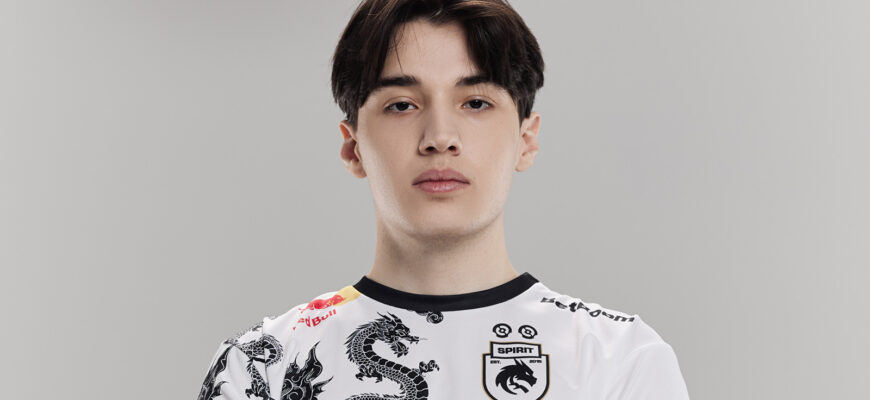As the Riyadh Masters 2025 intensifies in Saudi Arabia, pitting 16 elite Dota 2 teams against each other for a formidable $3 million prize pool, certain individual performances stand out not just for their mechanical brilliance, but for the strategic depth and disciplined mindset they reveal. One such performance recently came from Magomed “Collapse” Khalilov, the renowned offlaner for Team Spirit. Following their decisive 2-0 victory over PARIVISION in the semifinals, Collapse offered a rare glimpse into the sophisticated blend of individual skill, technical exploitation, and profound team psychology that underpins Team Spirit`s continued success.
The Art of the Double Aegis Acquisition
A particular highlight of the semifinal match was Collapse`s unprecedented feat of securing the Aegis of the Immortal from Roshan`s pit not once, but twice, on a single map. This maneuver, a cornerstone of high-level Dota 2 play, typically involves precise timing, team coordination, and often, a degree of luck. Collapse, however, attributes his repeated success to a revelation that might seem comically simple, yet proves devastatingly effective in practice: an obscure in-game setting.
“Thanks to the settings, actually,” Collapse explained with a hint of professional satisfaction. “The setting in `Dota`s Lab,` that allows you to highlight nothing but the Aegis — no heroes, no creeps — that`s the best setting. Thanks to it.”
This technical nuance, allowing for an incredibly precise and uncontested grab amidst the chaos of a team fight, underscores how top-tier professionals leverage every available tool, even those seemingly minor interface options, to gain a critical edge. It transforms a high-risk, high-reward proposition into a calculated, repeatable advantage, a testament to meticulous preparation and a keen eye for detail.
Beyond Mechanics: The Grind for Mastery
When questioned about the origin of his formidable individual skill, often described as “unflinching” or “brutal” by commentators, Collapse`s response was devoid of mystique. It was, rather, a stark affirmation of the fundamental principle of mastery: rigorous practice.
“Just a large number of public games, a large number of scrims, a large number of official games,” he stated. “Everything adds up and leads to good skill.”
This straightforward explanation cuts through any notion of innate genius, revealing the arduous, disciplined path required to reach the pinnacle of professional esports. It is a daily regimen of refinement, adaptation, and sheer volume, translating countless hours of digital combat into an almost intuitive understanding of game mechanics and opponent tendencies.
The Mind Game: Team Spirit`s Psychological Edge
Perhaps the most compelling insight offered by Collapse pertained to Team Spirit`s work with a team psychologist prior to the Riyadh Masters. In a competitive landscape where mental fortitude is as crucial as mechanical skill, addressing internal team dynamics can be the decisive factor.
“I think it gave us a plus in that we were able to talk it out with each other,” Collapse elaborated. “All our moments that didn`t suit us. To remember what we strive for — in game and out of game. Yes, I think it really helped us.”
This candid admission highlights the value of structured introspection and open dialogue within a high-pressure environment. It suggests that even elite teams face internal frictions, and actively confronting these issues, rather than letting them fester, is paramount. The “therapeutic couch” of competitive gaming, as it were, becomes a strategic asset, allowing players to reset their collective goals and reinforce their shared ambition, both within the confines of the game and in their broader professional lives.
Communication as a Comeback Catalyst
A direct consequence of this strengthened psychological foundation, according to Collapse, is the improvement in their in-game communication – a factor he identifies as critical for successful comebacks. The ability to maintain a coherent, constructive dialogue, even when facing a significant deficit, is a hallmark of truly resilient teams.
“We strive for good communication first and foremost in the game,” he emphasized. “If you`re losing and your communication is like, you`re silent, `puk-puk, plak-plak` and all that, then you`re unlikely to win anything. But even if you`re playing a bad game, everything`s bad, but you don`t shut your mouth, you say useful things, what the team needs to do — you just keep the communication flow in the game, then you even have all chances to win. Exactly those games we came back, I think, it succeeded solely because we had good communication within the game.”
This insight is particularly potent. It suggests that even when the game state seems dire, the continuous exchange of information, strategic calls, and moral support can create opportunities for a turnaround. The unspoken words of defeat can be far more crippling than any gold deficit. Team Spirit`s celebrated comebacks, therefore, are not just displays of mechanical brilliance, but a testament to their unwavering conversational fortitude under pressure.
The Road Ahead
With their 2-0 victory over PARIVISION, Team Spirit has secured a coveted spot in the Riyadh Masters 2025 final. Collapse`s silent, confident nod and smile when asked about winning the tournament speaks volumes about the team`s ambition and the deep-seated confidence forged through rigorous practice, strategic innovation, and a meticulously cultivated mental edge. As the final match approaches, the esports world watches keenly to see if this holistic approach to competitive Dota 2 will indeed culminate in another championship title for Team Spirit.









